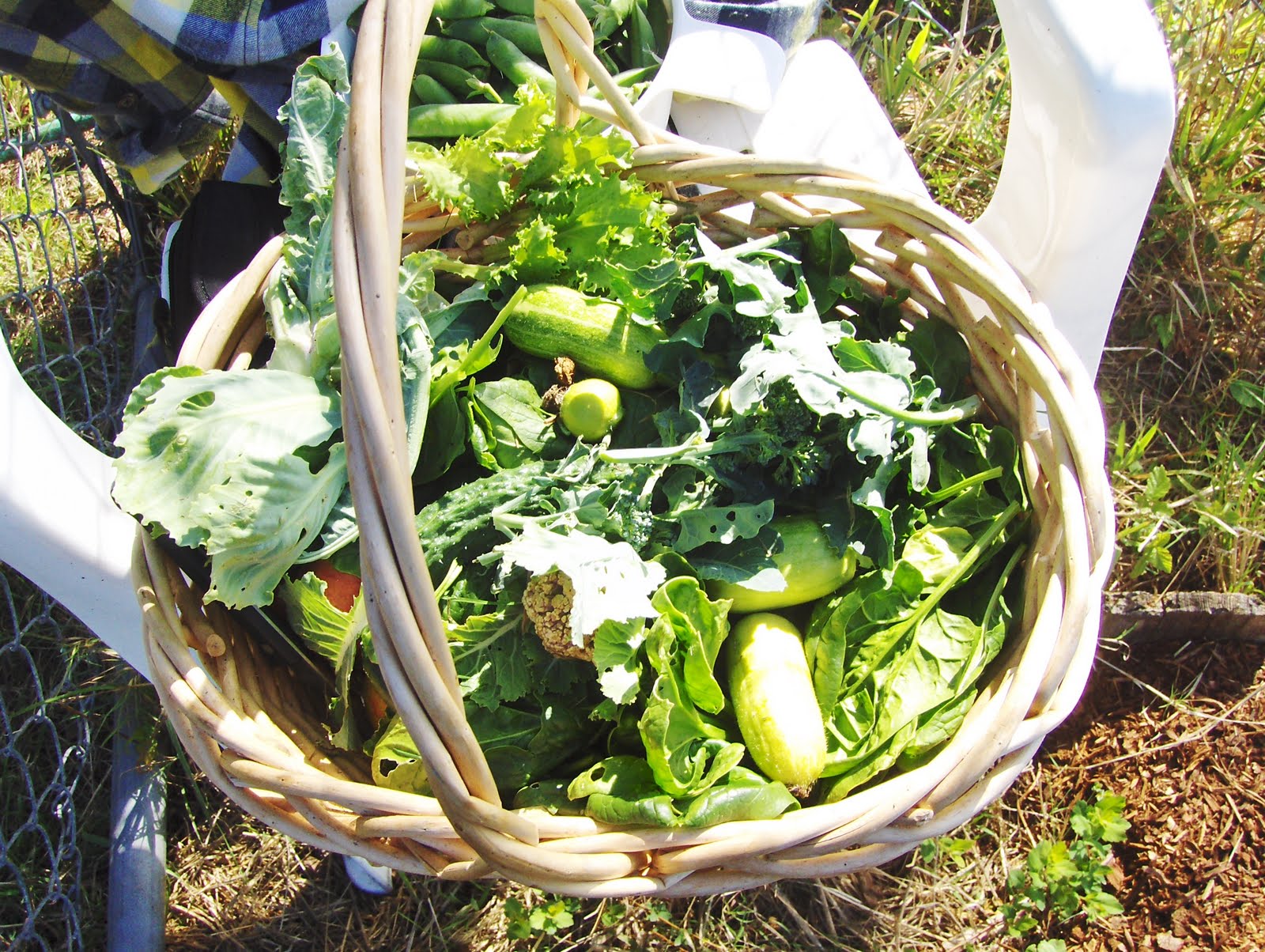Cooking is like looking back in the mirror and discovering your mother is looking at you!
We had our second cooking sessions with the 5th graders yesterday. It was cool, and beginning to spritz when they arrived. Rain was in full swing when they left. I opened the garage for them to leave their shoes in, and their rain gear before coming inside. Good thing I did!
We made minestrone, a rustic apple tart, and crostini with fava and blue cheese.
We used tomatoes, potatoes, parsley, zucchini, garlic and onions they brought. I added savoy cabbage, carrots, celery, green beans, sage, rosemary, thyme and basil.
I had to be precise in my measurements: something I do not do naturally. I wanted to explain that you can measure with your eyes and your hands, just the way my mother did. I tried. The children and the adults (the teacher, and two of my friends who came to help) wanted clear measurements.
How much of everything?
It doesn't really matter! If you like a certain vegetable, add it in small amounts and see how it changes things.
What does matter?
Taking time to layer the flavors, I responded, doing the sauteing slowly so the onions and the rest of the vegetables you start with, carrots and celery, are slowly caramelized, becoming sweeter, less sharp.
We went to all the steps. I showed them how I had cooked the white beans in advance, with bay leaves and unpeeled garlic cloves. Before I added the beans to the sauteed vegetables I removed the bay leaves and squeezed out the garlic.
Add salt and pepper to taste at this point, I warned.
Why now?
I didn't really know, except that's when Mother did it.
What's to taste?
It has to please your palate. Start with a small amount, taste and adjust. Do the same with herbs. Start with infusing them, tying them in a sachet and suspending them in the liquid. Add fresh herbs at the end, sprinkled over the soup, with a sprinkle of grated cheese.
How much is a sprinkle?
We added more vegetables, and more liquid, chicken stock from a box. I could have told them that Mother never used canned anything, except what she canned or jarred herself. But Mother didn't have our modern conveniences, and she was a homemaker most days when she wasn't helping Father in the vineyards. She always had a pot of beans boiling in the corner of the big hearth while she moved through chores.
Yes, I'm conjuring up home with every meal I put on the table. And my original home goes back many, many miles, across continents and oceans, and many many years.
This too is what our cooking is about. Retracing our steps and passing down the results of our journeys.


Wonderful post, Rosaria! We really do reach across the years and the miles when we cook family recipes. And I love the fact that you're teaching cooking and appreciation of good, fresh food to young people. In a day when instant everything is the norm, I hope they will remember your wisdom in taking time -- e.g. letting vegetables saute until they carmelize for extra sweetness -- instead of rushing through food preparation. It's so wonderful when you share your techniques and recipes and memories on this blog. All are treasures!
ReplyDeleteCooking and growing my own food seem to be restorative for me.
DeleteWhen is the next cooking lesson? I so want to be there. I loved this post because it speak so much to who you are. You are always the teacher, but more than that, you are also so wise. You bridge those wide expanse of time and space and bring great lessons of heritage, culture, and nurturing to all of us. Yes, as Dr. Kathy said, these posts are treasures.
ReplyDeleteYou and Dr. kathy are just so kind!
DeleteYour food preparations sound so enticing, delicious and filled with love; my mouth is watering. Probably due to insecurity, I never felt much love for cooking. I didn't learn to cook from my mother - what a pity - but picked up the Persian-style cooking pretty well (after years and years). Necessity was the key word; you can't let the family starve, so you give it the best you can and eventually succeed.
ReplyDeleteRegarding adding salt after beans are cooked, I heard that beans, as well as other legumes, don't soften as well when you add salt early-on. There might be some truth to that per my experience.
Helga, this is the third time I try to respond, and hope my computer accepts it!
DeleteYes, I heard the same explanation of why salt should come last.
I'm surprised you didn't learn to cook from your mother! There is a lot of stuff we pick up from our families that stays with us, regardless.
Always a pleasure receiving your visits. When are you starting to blog?